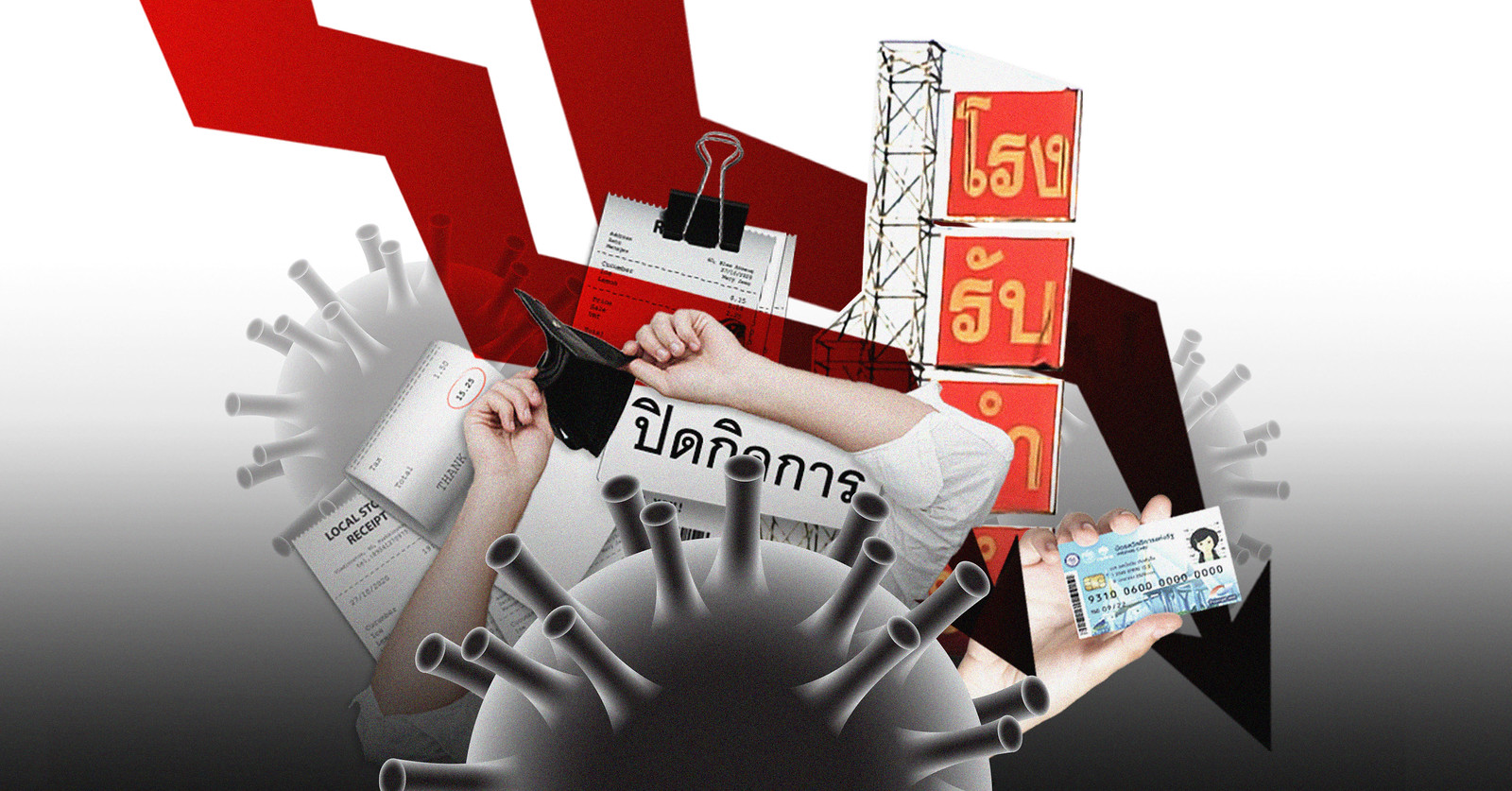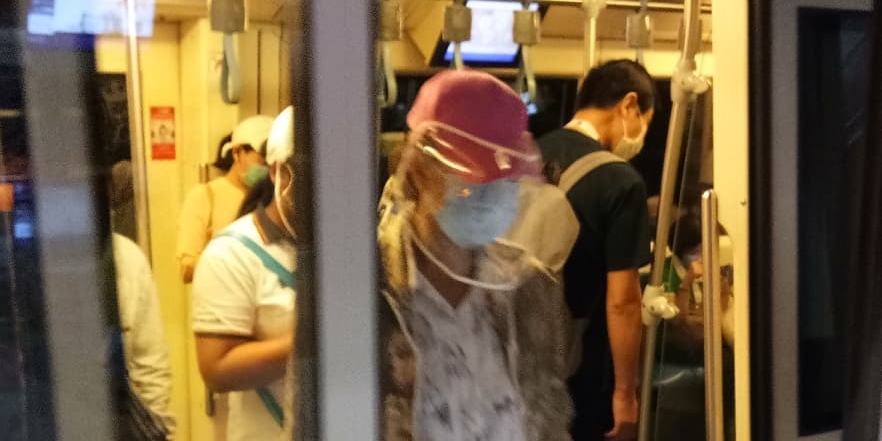A study by the Centre for Research on Inequality and Social Policy (CRISP) finds that low-income people were heavily affected by the pandemic. Without appropriate support, the lingering damage may slow their recovery more than expected.
- In 2020-2021, expenses for public utilities, food, and transportation ate up almost 90 percent of what low-income people earned.
- To meet these costs, they have had to sell assets such as vehicles, or find loans. Where the assets sold are their tools of trade, this will have a great impact on their future recovery.
- The policy that the low-income people most want is subsidies. Labour skill training is the least wanted.
- In the long run, the government must build a welfare system that is capable of addressing the right problem for the right target group.
The inequality that has resulted from the differential impact of Covid-19 has been an issue of interest while humanity weathered the storm. In the case of Thailand, Thorn Pitidol and Chaleampong Kongcharoen, two assistant professors of economics at CRISP, Thammasat University, detailed to Prachatai their findings on this question.
Fixed costs consumed up to 90 percent of income
CRISP surveyed people with a monthly income of less than 15,000 baht in 5 provinces - Bangkok, Chonburi, Khon Kaen, Chiang Mai, and Pattani. They focused on groups that were heavily affected by the pandemic such as owners of SMEs, and employees in the service, industrial, agriculture and construction sectors, and the unemployed.

They found that the financial impact in 2021 was greater than in 2020. The daily wage-earners and merchants saw their incomes decline the most in 2021, amounting to 36-39 percent from the pre-pandemic period. Employees in the service and construction sectors also lost 26-30 percent of their income.
Among the 5 provinces, low-income workers in Pattani, the southernmost, lost most income, followed by Bangkok and the northern province of Chiang Mai.
The detailed causes of income loss include both internal factors like personal spending and external factors like dwindling demand that led to a decrease in working hours and salaries.
Daily expenses on, for example, food, water, electricity and especially healthcare were the biggest costs for low-income people. The study found that 3 out of 4 respondents could not decrease these costs.
The living expenses that Thorn finds interesting are healthcare, transportation, and mobile phone and internet bills, as they seem to be the most difficult to reduce.
Chaleampong said food, accommodation costs like rent and transportation constitute up to 90 percent of the expenses of low-income people. Data from 2019 found that the bottom 20 percent of the population based on income, spend 50 percent of their income on food, 23 percent on accommodation, and 17 percent on transportation.
In contrast, the top 20 percent of the population spend 30 percent of their income on food, 30 percent on transportation, and 20 percent on accommodation. Low-income earners’ very small margin of income over expenses, even with state assistance, is affected by inflation to the point where they have almost no savings.
Vicious cycle
The study finds a decrease of less than 1 percent in savings, but accumulated debt has increased by 5 percent, especially during the second year of the pandemic in 2021. The significant impact of debt is the loss of assets like cars, motorcycles, or other household goods which were sold to pay off debt.
“Losing things like cars and motorcycles may have a long-term impact because they are used for work,” said Thorn.
“The low-income group had to sell their assets. If they sell their motorcycles, it’s not like they can get them right back when the economy gets better. This is something that needs help. A way must be found to restore this group’s economic capital.”
The CRISP study also found that the low-income people mostly did not want to change their main jobs. They wanted to either change their working conditions or find more side jobs. On the other hand, the pandemic caused 8 percent of this group to relocate their residences within the same province.

Passengers shield themselves with a face mask and a face shield on Bangkok's MRT subway.
The study also found that low-income people face high rates of mortality and morbidity from Covid-19 as more than 15 percent of the informants reported a household member either sick or dead from Covid-19 (survey as of January 2022). Pattani ranked first on this issue, with 30 percent of respondents reporting deaths and illness, leaving other provinces far behind.
What the informants neglected most in healthcare is exercise and health check-ups.
Health-related assistance hits the spot
The survey found that low-income people saw the authorities as the major agencies supporting their livelihoods during the pandemic. However, the number of people that received state support differs widely. In Bangkok, 90 percent of informants received support, but the number declined to 48 percent in Pattani.
Khon La Khrueng, a financial relief scheme where the government pays half the price of commodities, was most accessed by survey respondents at 55 percent, followed by the state welfare card, and the Rao Chana and Rao Mai Ting Gan financial schemes at 23-29 percent.
Despite this monetary relief, survey respondents gave the highest score to healthcare policies.
There are also people that are unable to access the relief. The most common reason is that they thought they were not qualified, and that they did not know how to apply, reflecting inadequate information.
Another important policy that is useful for low-income people is employment support, but the government has not done much on this. The survey also finds labour skill training least popular.
More occupation-based policies needed to get back afloat
Regarding post-pandemic expectations, what respondents in the retail sector want most is support to enable them to withstand change, to be resilient. Financial support is what low-income people want most from the government. Financial subsidies for rent or public utilities were mentioned.
Beside short-term monetary support, Thorn said there should be long-term assistance to low-income people to help to stabilize their position. Thorn and Chaleampong agree that support policies must be addressed to the right groups. They suggested creating different measures based on the needs of different occupations.
“Low-income people quite clearly agree that the restoration of economic capital is most important. What has been communicated is assistance in capital, in expenditures.”
“We must understand that due to the relatively high burden they bear, to have them restore their capital and restart their jobs is not something that can be done instantly. What about the debt that follows them from Covid-19 days? I think the government must think about how to relieve this.
“Measures that have been talked about a lot in conversations with the state sector like Reskill-Upskill, when we asked low-income people, they ranked them the least important. The state sector must look for measures that are really important to low-income groups,” said Thorn.
This article is translated and rewritten by Yiamyut Sutthichaya.
Prachatai English is an independent, non-profit news outlet committed to covering underreported issues in Thailand, especially about democratization and human rights, despite pressure from the authorities. Your support will ensure that we stay a professional media source and be able to meet the challenges and deliver in-depth reporting.
• Simple steps to support Prachatai English
1. Bank transfer to account “โครงการหนังสือพิมพ์อินเทอร์เน็ต ประชาไท” or “Prachatai Online Newspaper” 091-0-21689-4, Krungthai Bank
2. Or, Transfer money via Paypal, to e-mail address: [email protected], please leave a comment on the transaction as “For Prachatai English”
